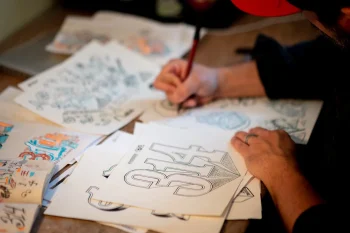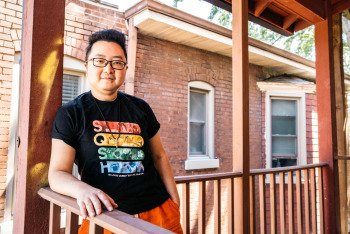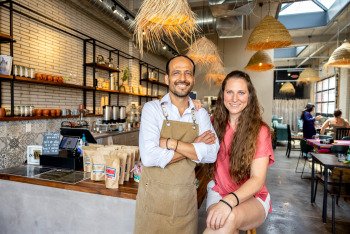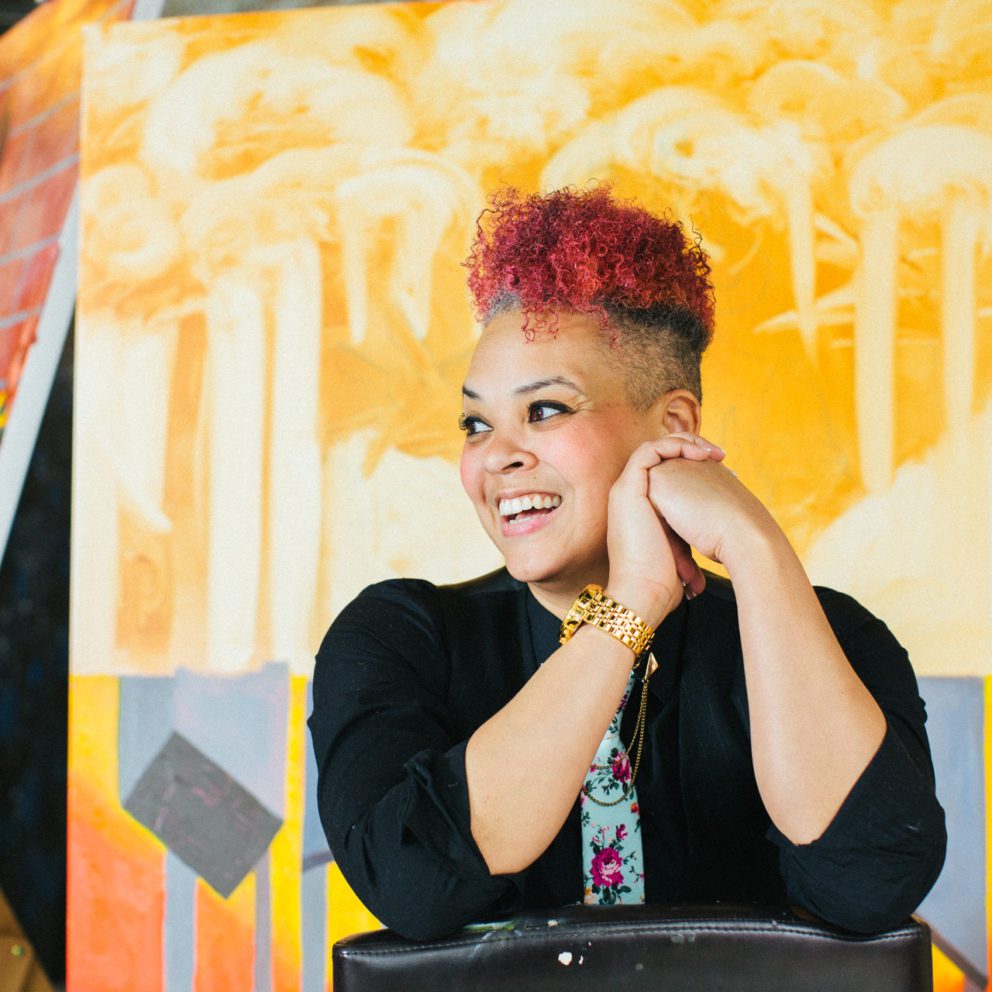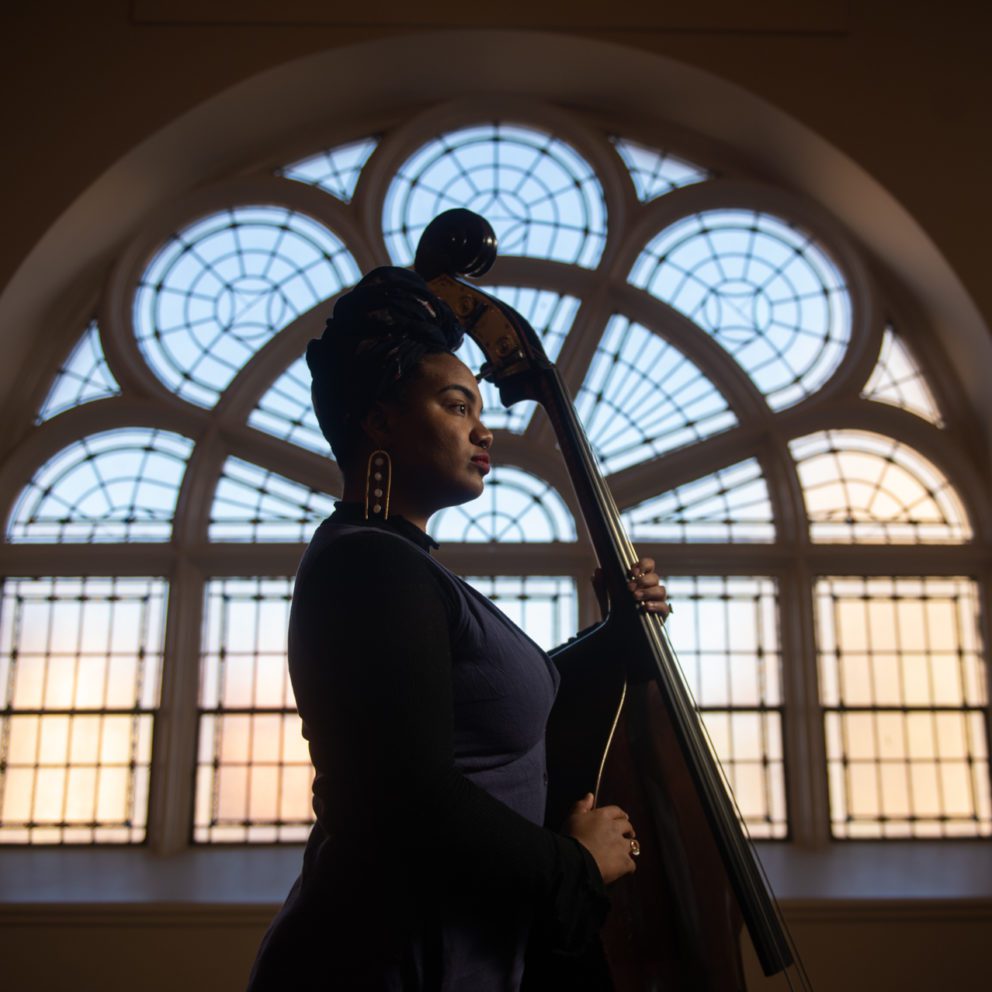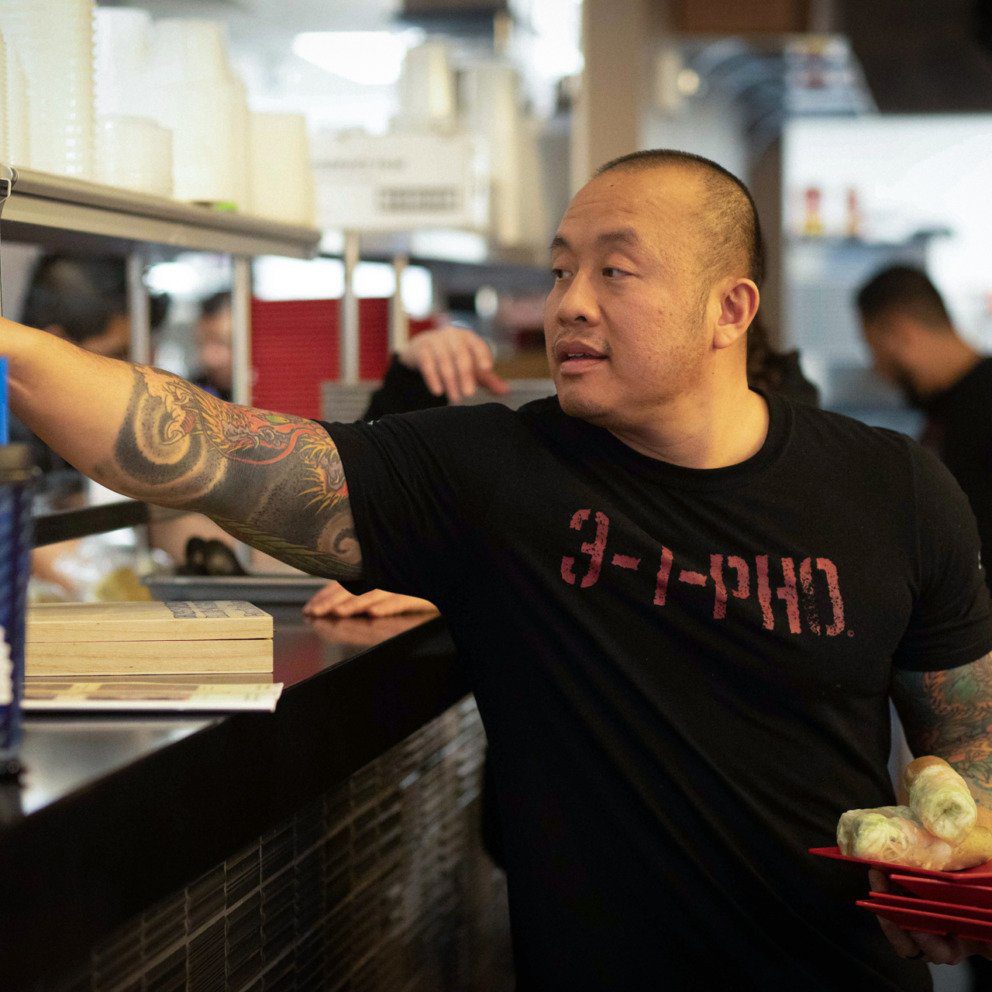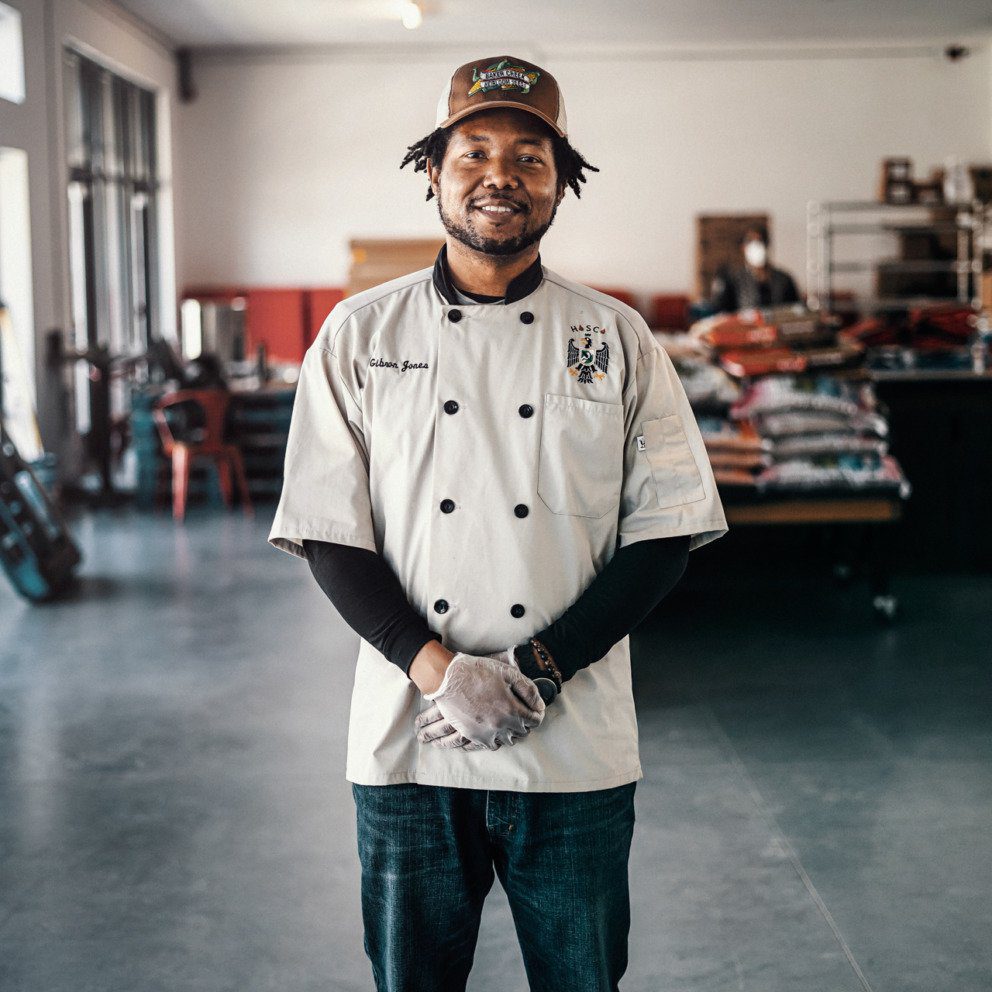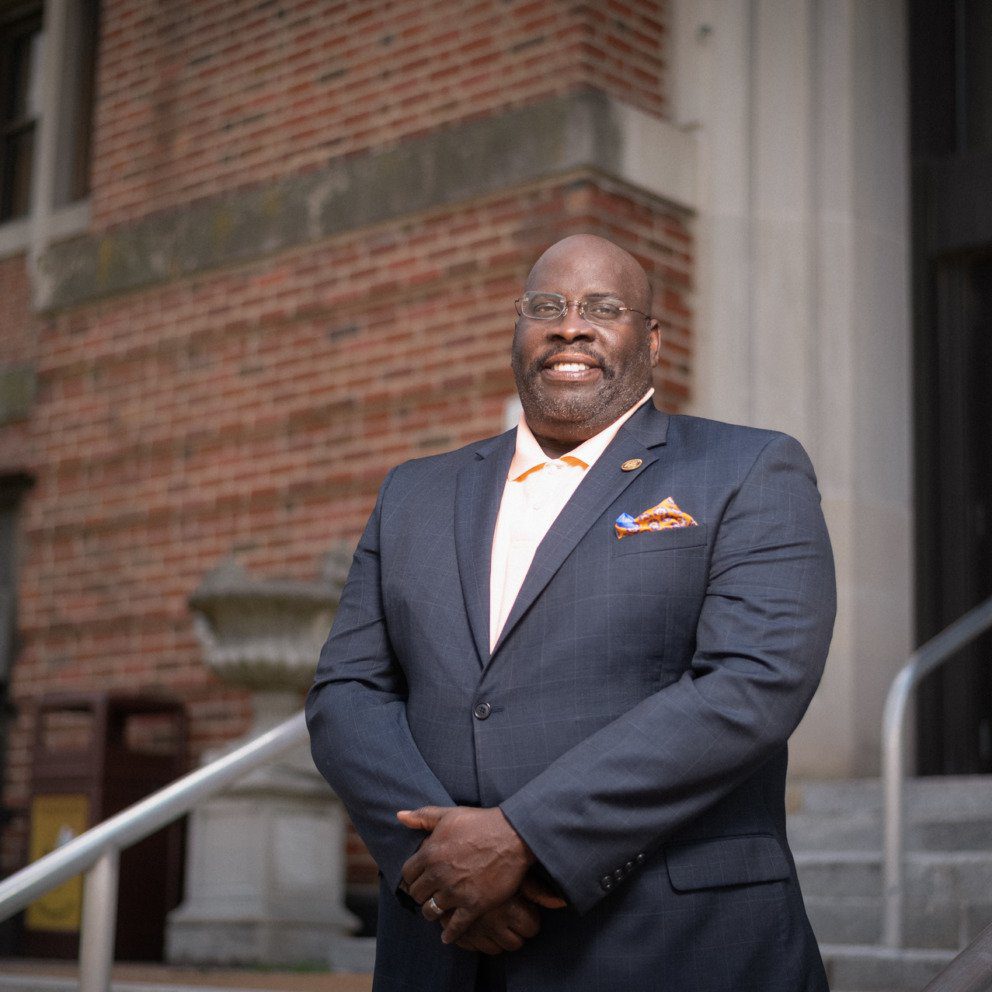Empowering the Community
For 20 years, Diversity Gallery owner Leslie Christian Wilson has connected with St. Louisans through art, jewelry and natural hair.
Diversity Gallery owner Leslie Christian Wilson has a lot of firsts under her belt, from being crowned Ladue Horton Watkins High School’s first Black prom queen to her role as the Clayton School District’s first Black PTO president. But in achieving these firsts and others in her twenty-plus years of being a successful entrepreneur, she’s had to overcome many challenges – including racism – along the way. Her experience influences the products and services she offers at Diversity Gallery, and how she treats everyone who enters the boutique—like they’re family.
Christian Wilson’s story begins in the neighborhood just southeast of the Delmar Loop where she grew up attending St. Roch Catholic School. When it was time for her to go to high school, however, she became part of the first wave of students to participate in a voluntary desegregation program. She was bussed out to attend Ladue Horton Watkins High School in St. Louis County.
She describes her time in high school as a great experience, where she was able to bring together city kids and county kids. So much so that she became their first Black prom queen her senior year.
“It’s not about being a prom queen, but being able to bring both cultures together where we could kind of mesh and get to know each other as human beings, not as what our zip code was or what area we lived in,” Christian Wilson said. “And I thought that that was a paramount moment. Even when I’ve now gone back for my 30-year reunion, everybody remembers me as that person. And for me, that was priceless in my life, to be able to navigate both worlds – not forgetting my culture, but being immersed in a culture that wasn’t mine and being able to navigate it successfully.”
She went on to attend a historically Black college, Southern University and A&M College in Baton Rouge, Louisiana, for a year and half. Due to an illness in the family, she transferred to another HCBU closer to home, Lincoln University in Jefferson City, Missouri. She then finished her bachelor’s degree at Fontbonne University here in St. Louis.
“And that’s where I actually wrote my business plan for Diversity Gallery,” she said of Fontbonne. “That was my senior thesis.”
“The gallery was something I always wanted to do. I always was fascinated with art – all mediums. And I always knew that I wanted to work for myself,” she says. “I did get out in corporate America. I worked at companies like Anheuser Busch and MCI and I was successful, but I could see the corporate culture was not for me because when I excelled, they didn’t like me to excel.”
While working in the corporate world, Christian Wilson experienced hostility towards her natural hair and financial discrimination. So, in 2000, she and her mother pooled their savings and spoke to Joe Edwards about renting store space in the Pageant building that had opened the same year. Edwards owns and operates several attractions in the city, including Blueberry Hill and Pin-Up Bowl. He also co-founded The Loop Special Business District in 1980.
Christian Wilson said when she approached Edwards, he told her he would much rather give the store space to a local businessperson with passion than to a corporate conglomerate. Edwards soon became Christian Wilson’s mentor.
Diversity Gallery opened in 2000 and would call the Pageant home for years to come. In the boutique, Christian Wilson says you can expect to find art, jewelry and textiles from around the world – from places like Morocco, other parts of Africa and India. But you can also expect to be treated like family, she says.
“The gallery has been more like a ministry, because it empowers the community,” she said. “People know they can come in now. They might not buy anything that day, but they’ll go tell somebody, ‘Oh my God, those people in there, they’re the real deal. You know, they actually care.’”
Shortly after the gallery opened, the Sept. 11, 2001 terrorist attacks rocked the U.S. economy and Christian Wilson had to find a way to survive financially. She had been doing natural hair on the side, and decided to incorporate that service into the mix of what the gallery offered.
Christian Wilson notes that the natural hair movement is more than just advocating for all hair to be accepted the way it is without alteration. It’s a movement that encourages people to exist the way they want to exist and to love themselves the way they are. She wants to reverse the societal message that Black people are persuaded to believe: that their natural hair is not good enough.
“You just have to learn how to work with your hair and make it do what it naturally will do. And your texture is different from everybody else, but you have to find out what your texture of hair will do and what products work successfully on your hair,” she says. “That’s what I’ve done for the last 20 years, is be a pioneer to that end, empowering people to be excellent regarding themselves, whether it’s their hair, their mindset, their level of confidence. Just empowering them to be the best that they can be.”
As rental rates in the Loop began to rise and construction for the Loop trolley began to disrupt both car and foot traffic, Christian Wilson made the decision to move Diversity Gallery to 1010 North Sarah Street, where it’s located today. She chose the new space in part because a local development company said they were going to bring economic development and financial revitalization into the area. However, in the seven years since the gallery’s relocation, Christian Wilson says the money has not begun to trickle down to businesses in the neighborhood.
When Christian Wilson looks at the macro picture of it all, there’s a sense of hopelessness she feels about the lack of resources allotted to the neighborhoods north of the Delmar Divide, especially layered with the police brutality against Black people happening across the country.
“But this has been going on for hundreds of years, and being an African American person, this is your reality on a day-to-day basis,” Christian Wilson said. “It doesn’t hit White people because it’s not their reality daily, or it’s not your child’s reality. You don’t have to tell them how they need to be in the world. You know, that’s shameful that you have to tell a little Black kid how they have to be and present in the world. They can’t just go and show up.”
But, she adds, the movement towards racial equity has felt different recently.
“I do see that paradigm shift. I see that people are really, really seeing now. And they’re looking into themselves.”
Christian Wilson also speaks of her daughter’s experience going to school in Clayton, and of her own experience being the district’s first Black PTO president. She has had to have some difficult conversations with the school’s administration concerning the microaggressions her daughter has been on the receiving end of in the classroom.
“I advocate, not fight, because I’m advocating for my child and it’s just – it’s exhausting,” she says. “You just keep persevering because you’re doing it for your children. I’m doing it for my child, but exponentially other children will benefit by me advocating for them.”
Even with the exhaustion she feels, she hasn’t lost the drive to continue advocating; it’s a big part of her business goal for the future. She wants to own a building and create an incubator space for new businesses.
“And then I can be a mentor for them to help them with every aspect and growing that business, bringing it to fruition. And then as they grow, bring someone else in and continue to learn and teach and grow our community and in a way that’s positive and that people can embrace it and want to be a part of it.”
Join the Story
- Check out Diversity Gallery’s latest selection of jewelry, art, clothing, beauty products and hair care services.
- Connect with Black-owned businesses and learn about events around the city at For the Culture STL.
